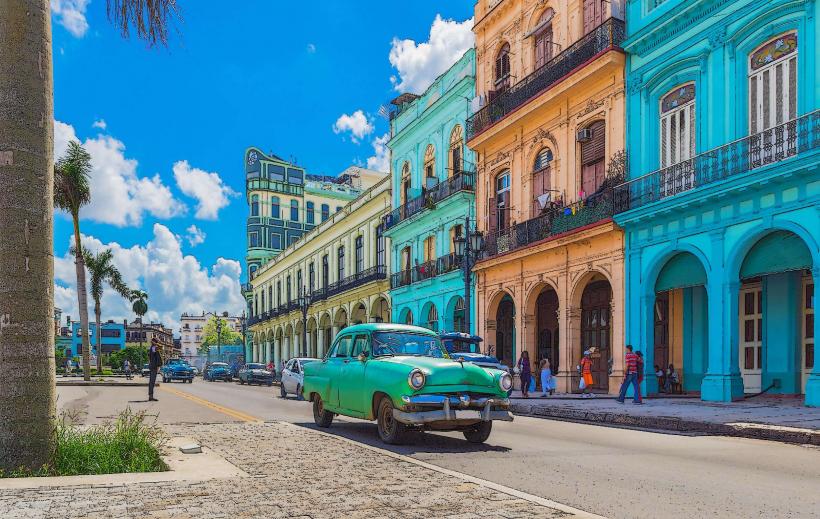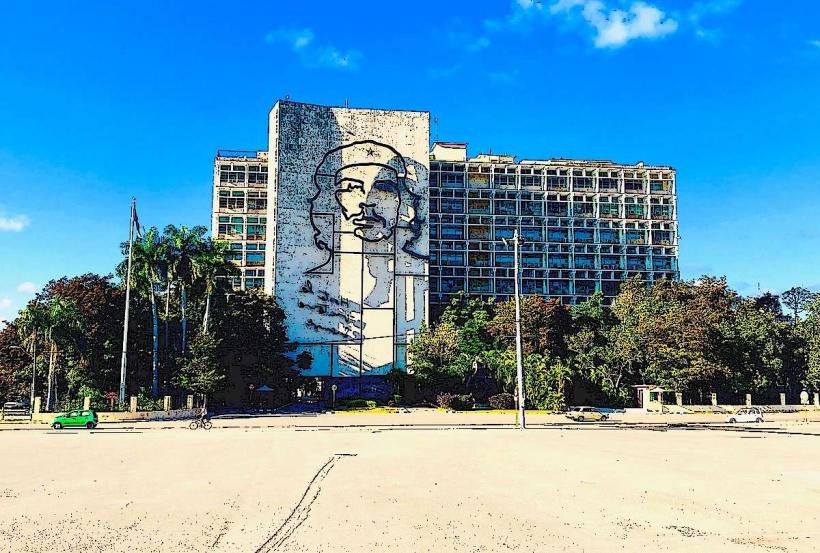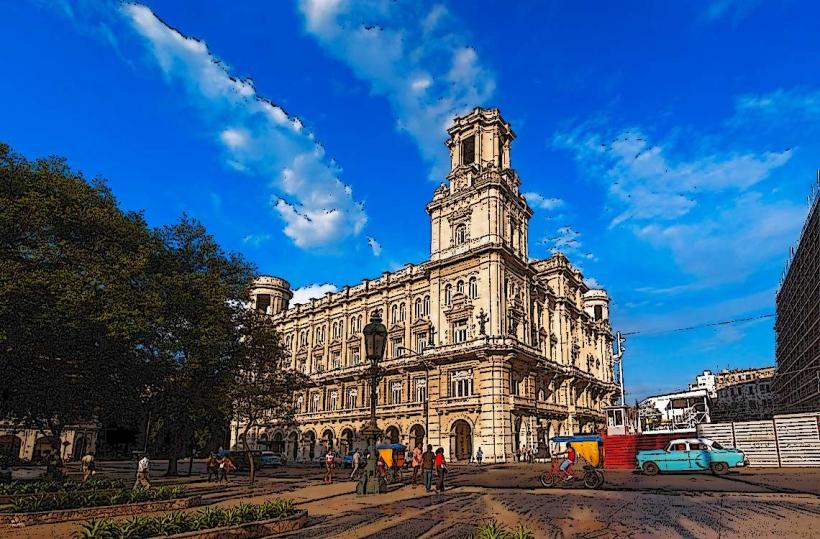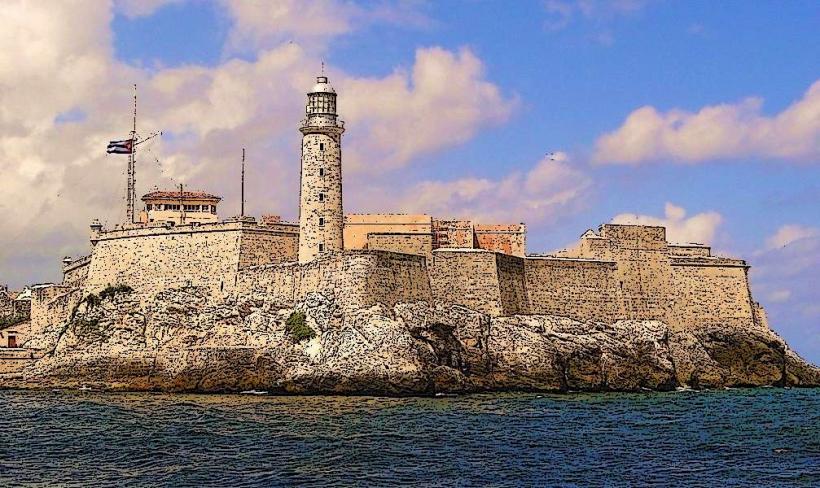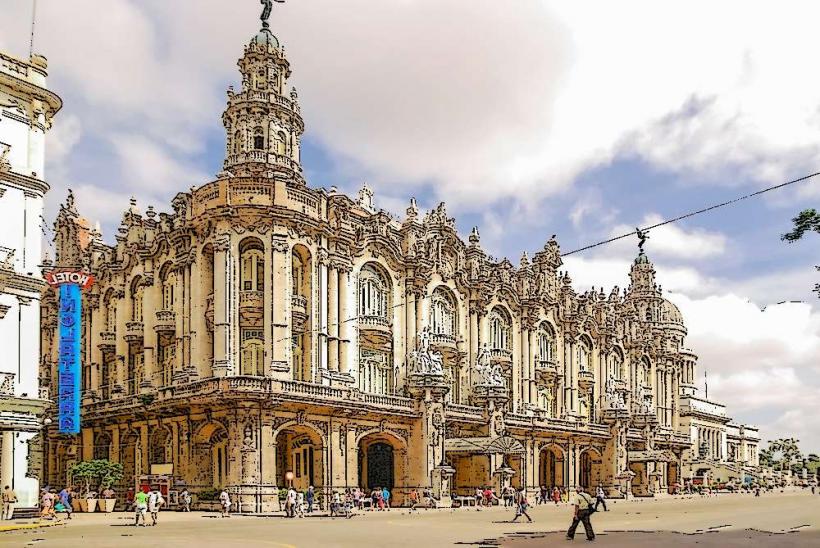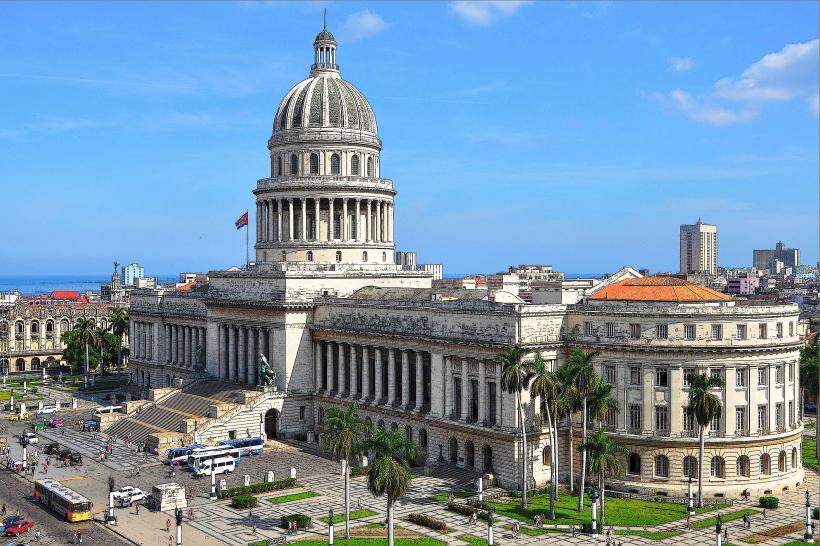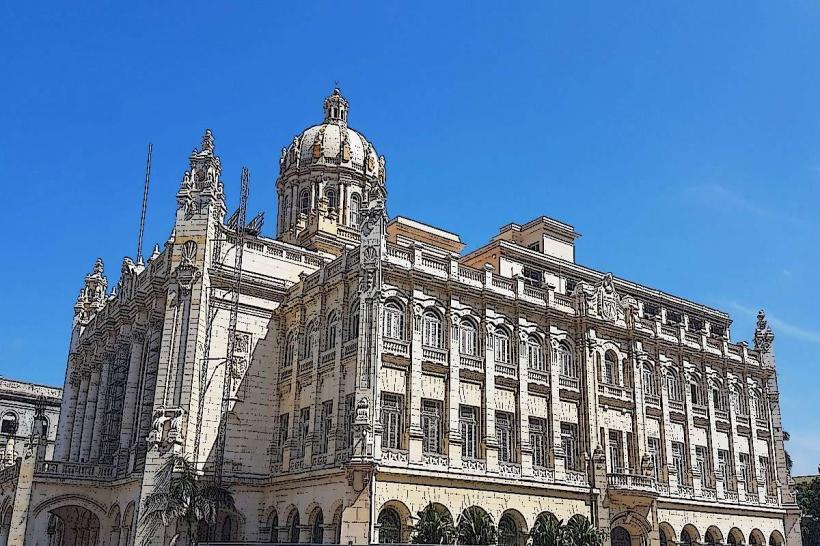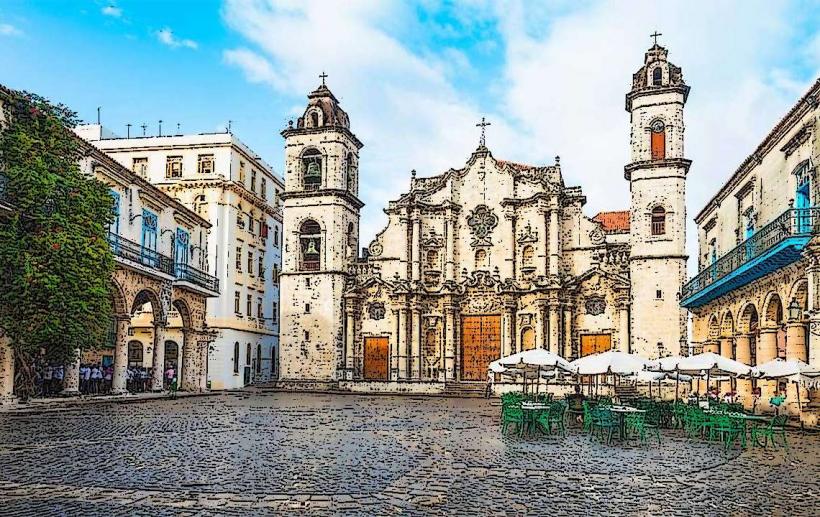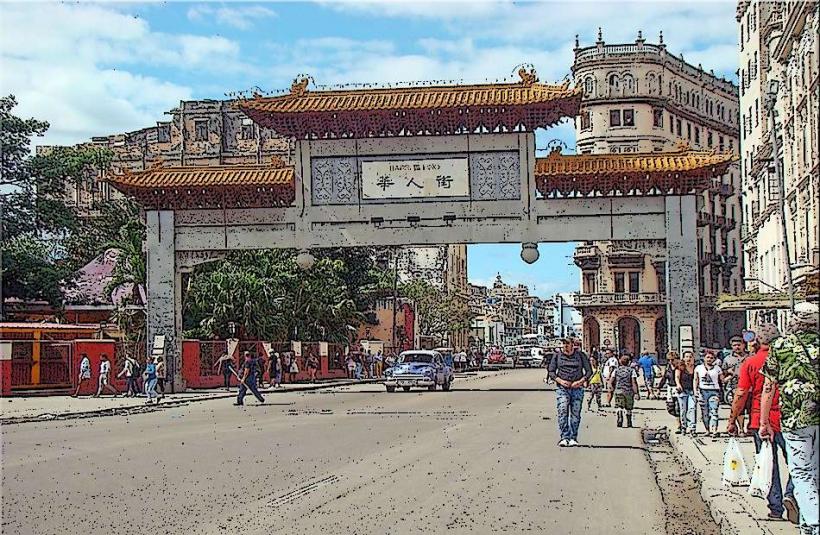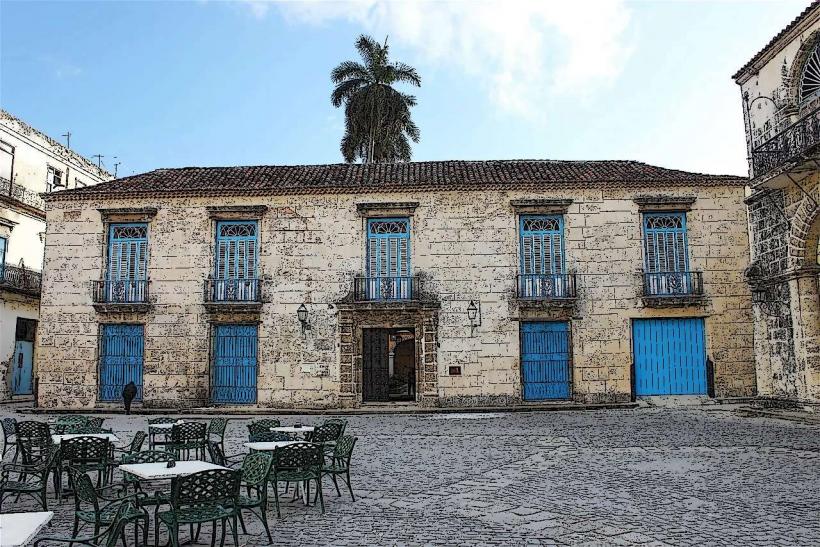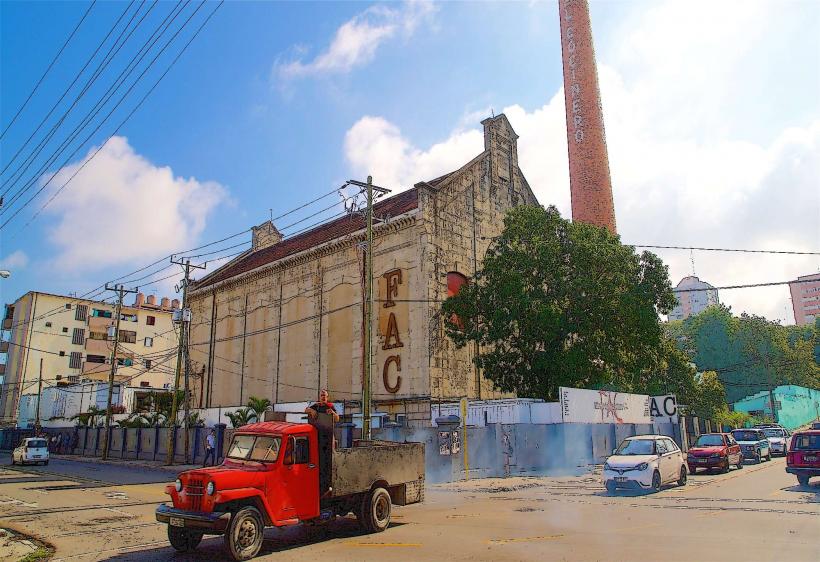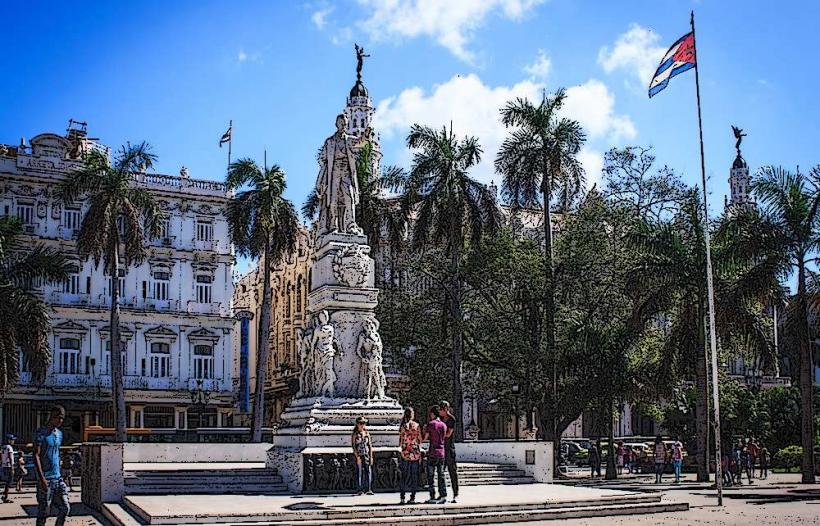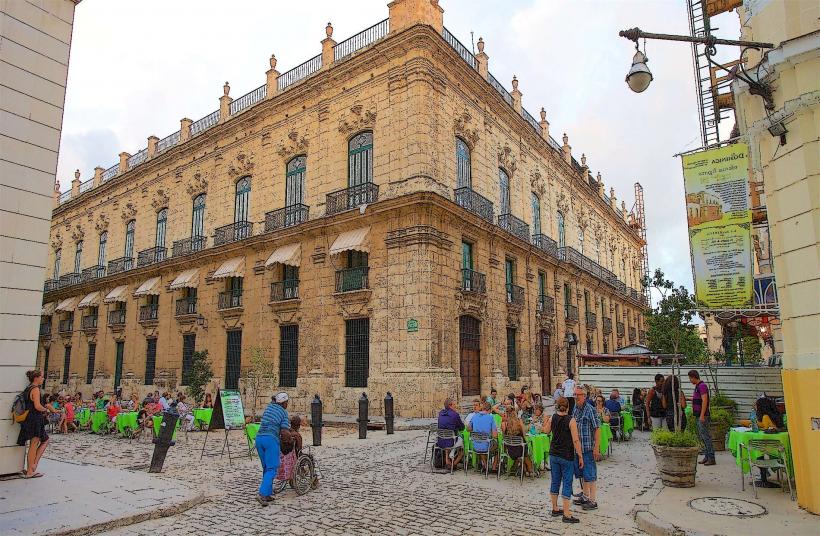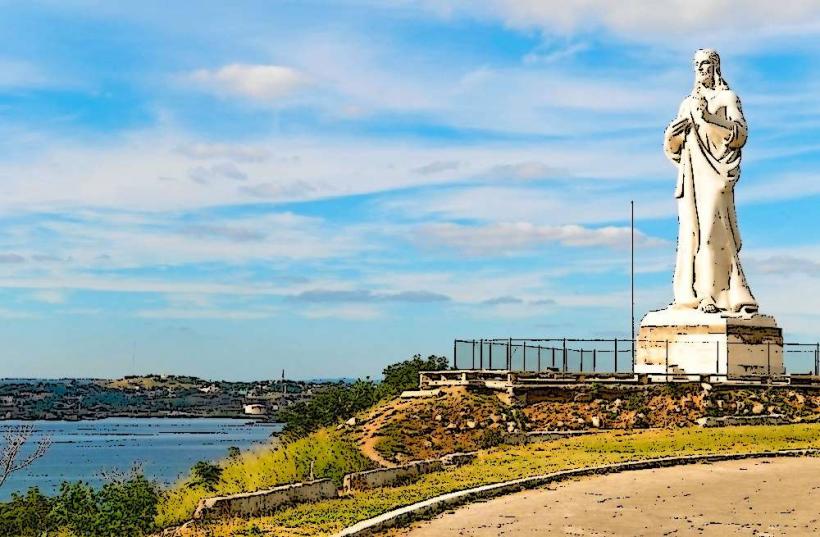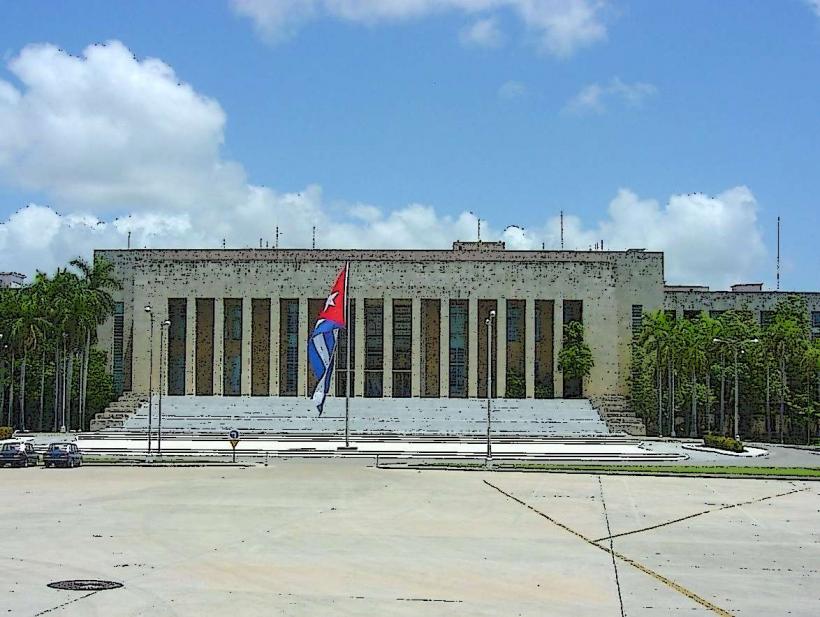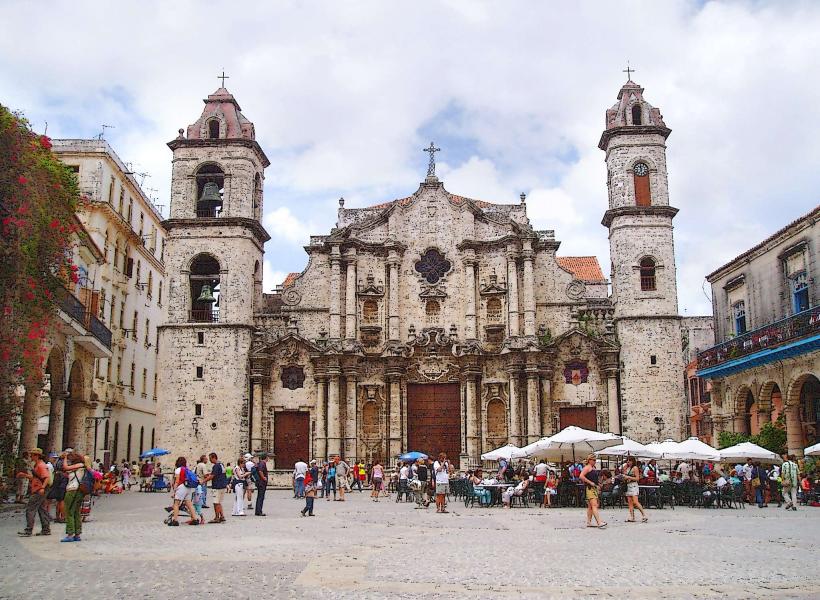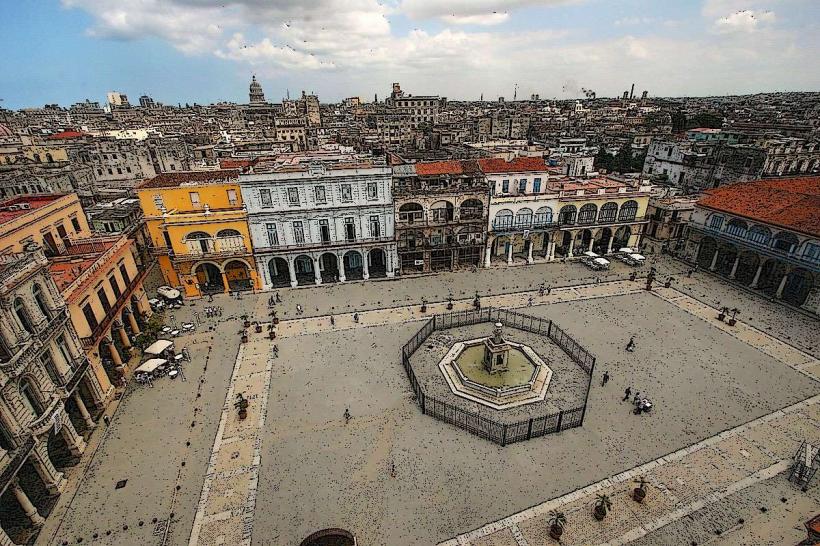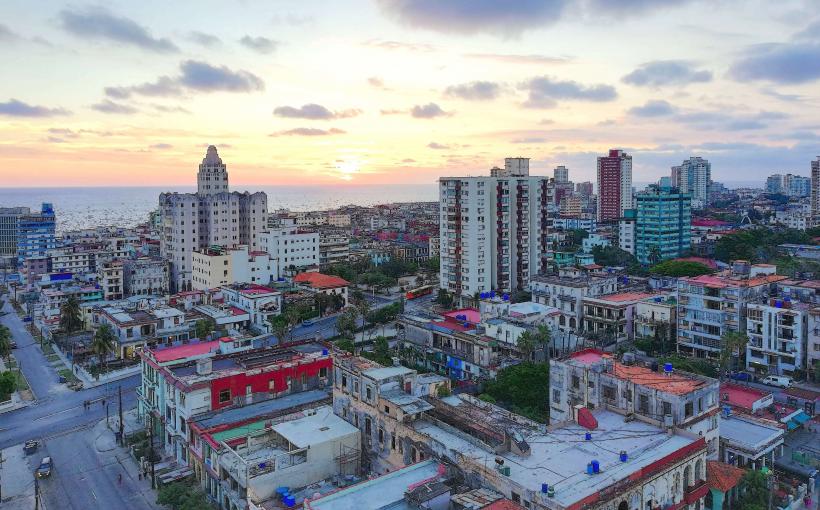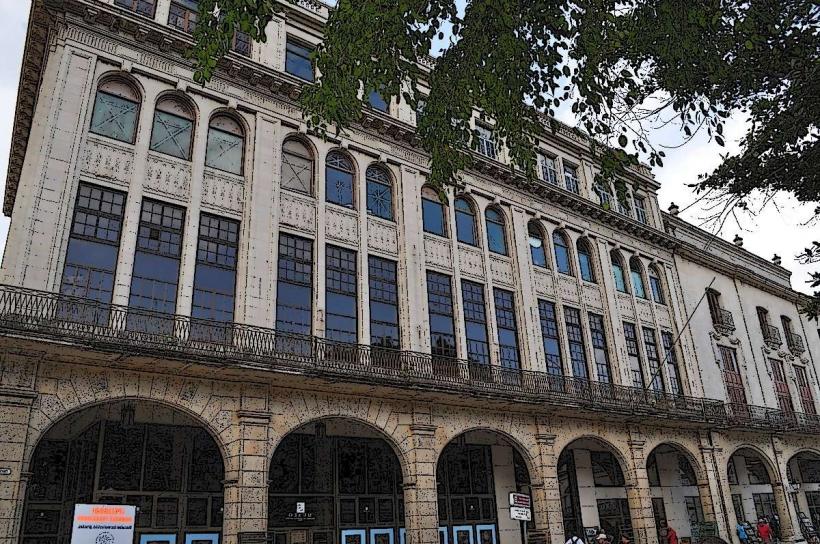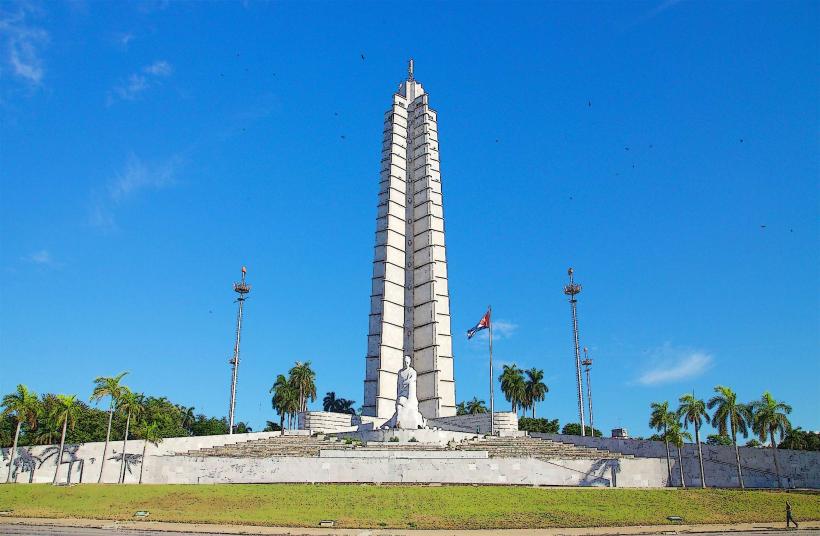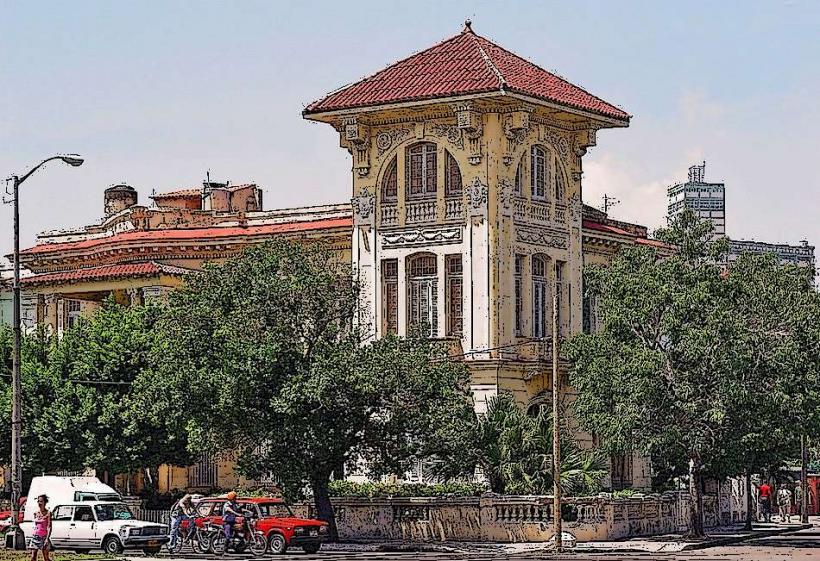Information
Landmark: El MalecónCity: Havana
Country: Cuba
Continent: North America
El Malecón is a scenic and historic waterfront promenade located in Havana, Cuba. It stretches for about 8 kilometers (5 miles) along the coast, offering stunning views of the Gulf of Mexico and the Havana skyline. The Malecón is a beloved part of the city, serving as both a place for locals to socialize and relax and a major tourist attraction. Here's a detailed look at this iconic location:
History
El Malecón was first constructed in the early 20th century, beginning in 1901, with the intention of protecting Havana's harbor from the effects of waves and coastal erosion. It also functioned as a road for cars to pass along the waterfront. The promenade was expanded in phases and officially completed in the 1950s, with much of its architectural design reflecting the colonial and early 20th-century styles popular at the time. It was originally intended to be an elegant and functional feature for the city but soon became a hub for social activity.
Architecture
The Malecón is known for its blend of architectural styles. Its structures combine elements of art deco, neo-classical, and colonial influences. The area features several historic buildings, including some from the pre-revolutionary era, such as grand hotels, apartments, and iconic landmarks. Key points of interest include:
- El Castillo de la Real Fuerza: A fortress dating back to the 16th century, it stands near the Malecón and adds historical significance to the promenade.
- Hotel Nacional de Cuba: Located near the western end of the Malecón, this grand hotel is a testament to the opulence of pre-revolutionary Cuba.
Social and Cultural Significance
The Malecón is an essential part of Havana's culture. Locals often visit the promenade to enjoy a walk, socialize, or simply sit along the seawall, listening to the sounds of the waves. It's a popular spot for fishermen, lovers, and street performers. The sunset views along the Malecón are breathtaking and draw both locals and tourists in the evening. Many significant cultural events and festivals are also held in the area.
Scenery
The Malecón offers spectacular views of the sea and the Cuban coastline, with several sections providing excellent vantage points for watching the horizon. The waves crashing against the seawall are a regular spectacle, and when the weather is particularly rough, the waves can even splash over the top of the wall, creating dramatic scenes that attract photographers and visitors.
Key Landmarks and Points of Interest
- Faro del Castillo del Morro: A lighthouse at the entrance of Havana's harbor, this landmark is a historic symbol of the city's maritime significance.
- La Punta: The westernmost point of the Malecón, offering expansive views of the Gulf of Mexico and nearby coastline.
- Tribuna Antiimperialista: A controversial monument in Havana that faces the sea, symbolizing Cuba's resistance against imperialism, particularly the U.S.
Modern-day Malecón
Today, El Malecón is not only a picturesque location but also a hub of activity. It has been a backdrop for various cultural and political movements, and it continues to attract attention as a symbol of Cuban resilience and beauty. The promenade has been the subject of several restoration projects to maintain its iconic status, despite the challenges of coastal erosion and wear over the years.
Nearby Attractions
- Old Havana (Habana Vieja): A UNESCO World Heritage site, Old Havana is just a short distance from the Malecón, providing a vibrant contrast to the waterfront.
- Plaza de la Revolución: Located a bit further inland, this square is where major political events have taken place, with its large monuments dedicated to the Cuban revolution.
El Malecón remains a vital and cherished part of Havana, blending history, culture, and natural beauty.

